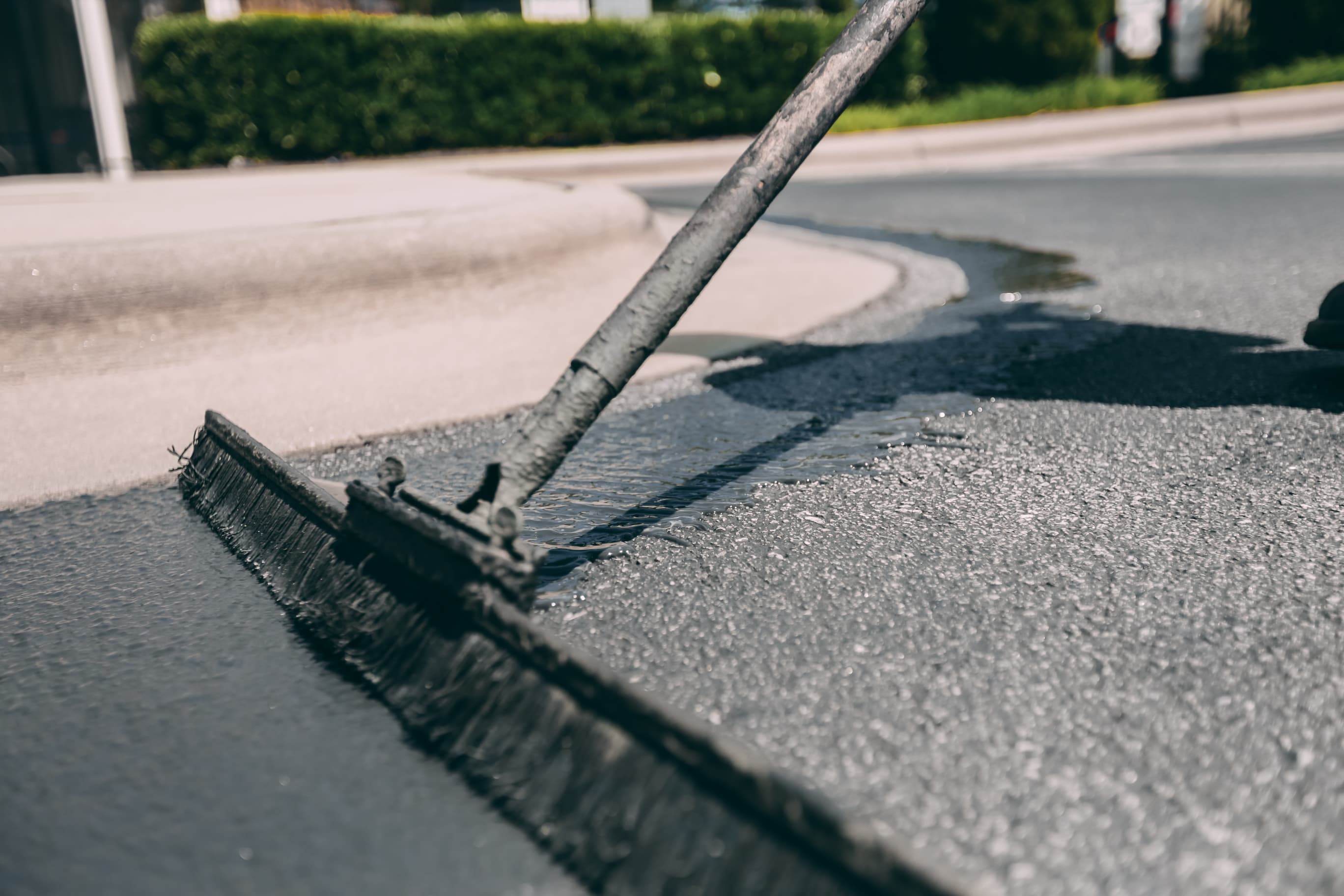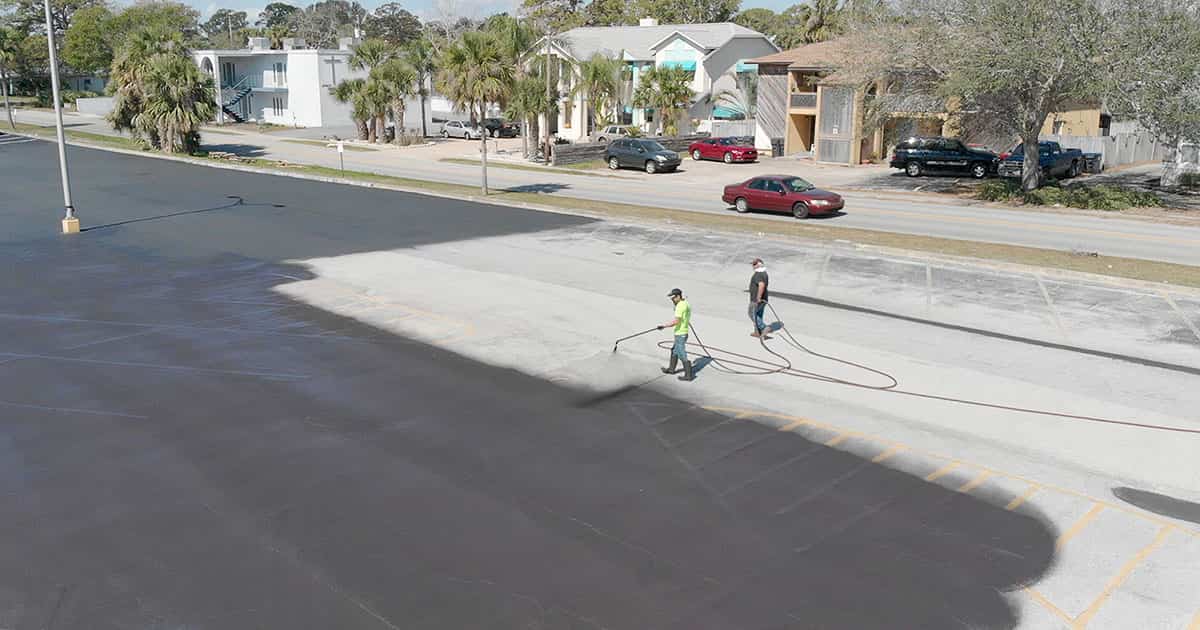Rejuvenate Your Building with Regrading and Asphalt Sealing Methods
Wiki Article
Warm Mix Asphalt: A Lasting Solution for Sidewalk
Warm Mix Asphalt (HMA) has actually become a leading lasting option for pavement solutions, offering a myriad of environmental benefits and cutting-edge modern technologies. Its capacity to lower and recycle materials power usage offers a compelling situation for its adoption in roadway building tasks. The lasting performance and longevity of HMA make it a recommended option for facilities development. As the need for green construction methods grows, checking out the nuances of HMA's sustainability can provide beneficial understandings right into the future of pavement solutions.Ecological Advantages of Hot Mix Asphalt

In Addition, Warm Mix Asphalt assists to alleviate metropolitan warmth island impacts. Its dark shade absorbs sunshine, minimizing the amount of warmth reflected back right into the environment compared to lighter-colored pavements. This can reduce ambient temperature levels in metropolitan locations, decreasing the demand for cooling and ultimately decreasing power intake.
Additionally, Warm Mix Asphalt adds to enhanced stormwater administration. Its porous nature allows water to recharge and penetrate the pavement groundwater materials, lowering runoff and the threat of flooding. These ecological advantages make Hot Mix Asphalt a lasting choice for leading highways and roadways.
Energy Performance in HMA Production
Is power effectiveness a vital factor in the manufacturing of Warm Mix Asphalt (HMA)? Energy plays a substantial function in the production of HMA, influencing both price and environmental sustainability. One vital element of power performance in HMA production is the usage of warm mix asphalt (WMA) innovations.Furthermore, advancements in plant modern technologies have brought about more energy-efficient HMA manufacturing processes. Modern plants are developed with attributes like recycled asphalt sidewalk (RAP) processing capabilities, effective burner systems, and boosted insulation, all contributing to energy cost savings. By enhancing energy usage in HMA production, the market can lower its carbon impact while maintaining top quality sidewalk materials. Energy performance is, therefore, an important factor to consider in making certain the sustainability of Hot Mix Asphalt manufacturing.
Recyclability of Hot Mix Asphalt
The recyclability of Warm Mix Asphalt (HMA) is a critical aspect of its sustainability and lasting ecological impact. HMA is one of one of the most recycled products in the USA, with over 100 million lots of like it reclaimed asphalt sidewalk (RAP) being reused yearly in new pavement building and construction. Recycling HMA uses a number of ecological advantages, such as lowering the demand for virgin products, decreasing power consumption throughout manufacturing, and lowering the amount of waste sent out to garbage dumps.The procedure of recycling HMA entails milling the existing sidewalk, crushing it right into smaller pieces, and mixing it with new aggregate and asphalt binder to create a recycled mix. This recycled mix can usually do along with and even better than standard HMA, while calling for fewer basic materials and generating reduced greenhouse gas discharges. By incorporating RAP into new sidewalk jobs, road firms can preserve natural deposits, lower expenses, and reduce the environmental footprint of road building and construction and upkeep tasks. In general, the recyclability of HMA helpful site plays a significant duty in advertising lasting techniques within the sidewalk sector.

Long-Term Performance of HMA
Asphalt sidewalks show durability and durability over an extended period, mirroring the long-term efficiency of Hot Mix Asphalt (HMA) Furthermore, advancements in HMA innovation, such as the usage of polymer-modified binders and warm mix asphalt, have better boosted the longevity and durability of HMA pavements. By focusing on top quality construction and maintenance practices, HMA proceeds to prove itself as a sustainable and affordable service for resilient sidewalk framework.
HMA: Toughness and Sustainability
Demonstrating both longevity and sustainability, Hot Mix Asphalt (HMA) has actually ended up being a cornerstone in the building of lasting pavement frameworks - commercial parking lot paving. HMA's resilience stems from its ability to endure hefty loads, harsh climate problems, and high traffic quantities, making it a trusted selection for highways, highways, and airport terminal runways. The make-up of HMA, which typically includes accumulations, binder, and filler, plays a critical role in boosting its durability and resistance to tear and put on
Additionally, HMA's sustainability depends on its recyclability and energy-efficient production process. The capacity to reuse reclaimed asphalt pavement (RAP) in new HMA mixes lowers the demand for virgin materials and minimizes the environmental effect of sidewalk building and maintenance. In addition, the power efficiency of generating HMA depends on its reduced blending temperatures compared to other sidewalk products, resulting in minimized energy intake and greenhouse gas exhausts.
Final Thought
In final thought, warm mix asphalt (HMA) offers a sustainable service for pavement with its environmentally pleasant features. HMA's recyclability, energy efficiency in production, and long-term longevity make it a green choice for roadway construction. By saving natural sources, reducing waste, and lowering greenhouse gas exhausts, HMA plays a vital duty in advertising sustainability in infrastructure growth. Its capacity to minimize metropolitan heat island official statement results even more highlights its importance in producing durable and eco aware pavement systems.
HMA is one of the most recycled products in the United States, with over 100 million heaps of reclaimed asphalt sidewalk (RAP) being recycled each year in brand-new pavement building and construction.The procedure of recycling HMA involves milling the existing pavement, squashing it into smaller pieces, and mixing it with new accumulation and asphalt binder to develop a recycled mix.Asphalt pavements show longevity and strength over a prolonged period, showing the long-term performance of Hot Mix Asphalt (HMA) Additionally, innovations in HMA innovation, such as the usage of polymer-modified binders and cozy mix asphalt, have better boosted the sturdiness and long life of HMA sidewalks. The capacity to recycle recovered asphalt pavement (RAP) in new HMA mixtures decreases the need for virgin materials and decreases the environmental influence of sidewalk construction and maintenance.
Report this wiki page